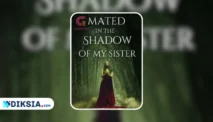Writing Style
Frankenstein or the Modern Prometheus is written in a formal and eloquent style that reflects the education and culture of Mary Shelley and her characters. The novel uses complex sentences, rich vocabulary, figurative language, and literary allusions to create a vivid and expressive narration. The novel also uses different modes of writing, such as letters, journals, speeches, dialogues, descriptions, and reflections to convey different perspectives and emotions.
The novel is influenced by various literary genres and traditions that were popular in the late 18th and early 19th centuries. Some of these genres and traditions are:
Gothic
A genre of literature that originated in the 18th century and features elements of horror, mystery, suspense, and the supernatural. The novel uses Gothic elements such as dark settings (castles, graveyards, laboratories), grotesque characters (the creature), sublime scenes (the Alps, the Arctic), supernatural events (the animation of the creature), secrets (Frankenstein’s technique), curses (the creature’s threat), and violence (the murders).
Science Fiction
A genre of literature that originated in the 19th century and features elements of science, technology, innovation, and speculation. The novel uses science fiction elements such as scientific theories (the cause of life), scientific experiments (the creation of the creature), scientific discoveries (electricity), scientific inventions (the creature), scientific consequences (the creature’s actions), scientific ethics (Frankenstein’s responsibility), and scientific warnings (Frankenstein’s message).
Romanticism
A movement of literature that originated in the late 18th century and features elements of emotion, imagination, individualism, and nature. The novel uses romantic elements such as emotional expression (Frankenstein’s and the creature’s feelings), imaginative creation (the creature), individual quest (Frankenstein’s and Walton’s ambitions), and natural beauty (the landscapes).
Pros and Cons
Frankenstein or the Modern Prometheus is a novel that has many strengths and weaknesses, depending on the reader’s preferences and expectations. Some of the pros and cons of the novel are:
Pros:
- It is a classic novel that has influenced many other works of literature and culture, such as Dracula, The Strange Case of Dr. Jekyll and Mr. Hyde, The Island of Dr. Moreau, Jurassic Park, Blade Runner, The Terminator, etc.
- It is a novel that raises important and relevant questions about the nature and limits of science, the responsibility and consequences of creation, the definition and value of humanity, the role and oppression of women, the effects and causes of isolation and alienation, etc.
- It is a novel that offers a complex and nuanced perspective on the characters and events of the story, as it uses different narrators, modes, genres, and traditions to create a rich and diverse narration.
- It is a novel that appeals to different tastes and interests, as it combines elements of horror, science fiction, romance, and classic literature.
Cons:
- It is a novel that can be difficult to read and understand, as it uses a formal and eloquent style that may be unfamiliar or boring to some readers. It also uses complex sentences, rich vocabulary, figurative language, and literary allusions that may require some background knowledge or research to appreciate.
- It is a novel that can be depressing and disturbing, as it depicts graphic scenes of violence and death, as well as themes of suffering and misery. It also portrays a bleak and pessimistic view of human nature and society, where there is no hope or happiness for anyone.
- It is a novel that can be inconsistent and unrealistic, as it contains some plot holes, contradictions, coincidences, and exaggerations that may challenge the reader’s suspension of disbelief. It also relies on some outdated or inaccurate scientific theories or facts that may undermine the credibility of the story.






